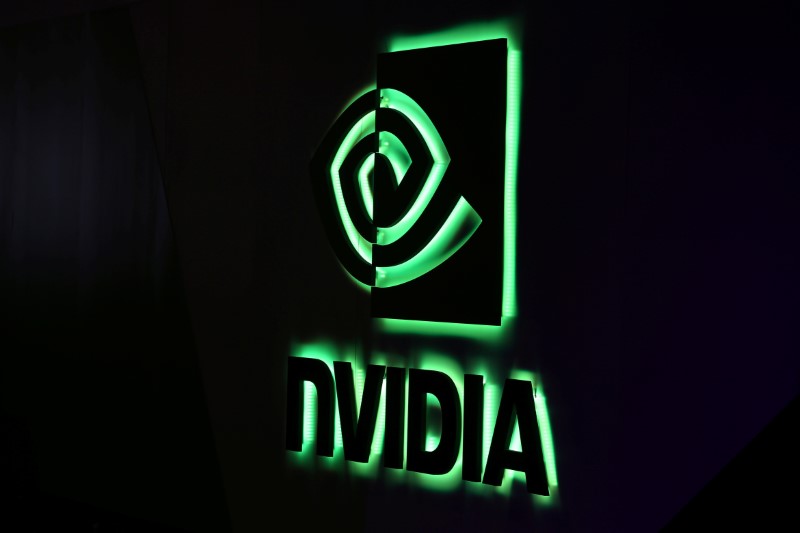Nvidia Corp (NASDAQ:NVDA) CEO Jen-Hsun Huang has sold a portion of his company shares, according to a recent SEC filing. The transactions, which took place on July 9 and 10, amounted to over $31 million in total value.
The filing revealed multiple sales at varying prices. On July 9, shares were sold in a range between $128.81 and $132.99. The next day, shares were sold at prices ranging from $132.45 to $135.07. These sales are part of a prearranged trading plan that Huang adopted on March 14, 2024, which allows for scheduled selling of shares over time.
While the exact number of shares sold at each price point was not disclosed in the document, the total amount of shares sold was significant, resulting in the multimillion-dollar figure. After the sales, Huang still retains a substantial number of shares in Nvidia, with direct and indirect holdings in various trusts and partnerships.
Investors often monitor insider transactions as they can provide insights into executives' perspectives on their company's stock. However, it's worth noting that such sales can be part of normal financial planning strategies and not necessarily indicative of a change in company outlook.
The transactions were executed in compliance with SEC Rule 10b5-1, which allows company insiders to set up a trading plan for selling stocks they own. This rule is in place to prevent insider trading by allowing major holders to sell their shares at predetermined times and prices.
Nvidia, known for its graphics processing units for gaming and professional markets, as well as system on a chip units for the mobile computing and automotive market, has seen its stock fluctuate in recent months amid a changing tech landscape.
Investors and analysts will continue to watch Nvidia's performance and insider transactions for potential indications of the company's future trajectory.
In other recent news, Taiwan Semiconductor Manufacturing Co (TSMC) has surpassed the trillion-dollar mark in market value, bolstered by robust demand for artificial intelligence applications. TSMC's upcoming second-quarter earnings report is highly anticipated by investors. Analysts at Grasshopper Asset Management expressed a positive outlook on TSMC's prospects, suggesting that the company's value is likely to appreciate further by 2025.
Meanwhile, NVIDIA Corporation (NASDAQ:NVDA) has been the subject of various analyst evaluations. Truist Securities maintained its Buy rating on NVIDIA stock, highlighting the company's potential for continued outperformance driven by organic sales growth. KeyBanc Capital Markets increased its price target for NVIDIA shares, citing robust product demand, particularly in the data center segment. However, New Street Research downgraded NVIDIA's rating from Buy to Neutral, citing concerns over the deceleration of revenue growth and increased market share by competitors.
In other developments, NVIDIA's shareholders approved several key proposals at the 2024 Annual Meeting, including the election of all twelve director nominees, advisory approval of executive compensation, and ratification of the company's independent registered accounting firm, PricewaterhouseCoopers LLP. Despite these positive developments, the company is set to face antitrust charges in France for alleged anti-competitive behavior.
These recent developments highlight the dynamic and evolving landscape for both TSMC and NVIDIA in the tech sector. As always, investors are advised to closely monitor these companies' earnings and revenue reports, as well as analyst upgrades or downgrades, to make informed investment decisions.
InvestingPro Insights
Nvidia's (NASDAQ:NVDA) recent insider transactions come at a time when the company's financial performance and market valuation are under close scrutiny by investors. With a high P/E ratio of 74.5, reflecting a significant earnings multiple, Nvidia's stock price movements have been notably volatile. Despite this, the company has a strong foundation with a perfect Piotroski Score of 9, indicating a healthy financial state and suggesting that its financials are improving.
From a sales perspective, analysts are anticipating growth in the current year, which may be a contributing factor to the CEO's confidence in engaging in scheduled share selling as part of his financial planning. Additionally, Nvidia has managed to maintain dividend payments for 13 consecutive years, reinforcing its commitment to shareholder returns despite the stock's volatility.
For those interested in a deeper dive into Nvidia's financials and stock performance, there are additional InvestingPro Tips available that could provide further insights. For example, users can find out how Nvidia's cash flows compare to its interest payments or explore the company's valuation multiples in more detail. By using the exclusive coupon code PRONEWS24, readers can get up to 10% off a yearly Pro and a yearly or biyearly Pro+ subscription, unlocking access to these valuable tips and more.
For a comprehensive analysis of Nvidia's market standing and potential investment opportunities, visit InvestingPro to explore the full list of tips, including those that delve into the company's profitability forecasts and liquidity. With a total of 21 additional InvestingPro Tips available, investors can gain a more nuanced understanding of Nvidia's position in the semiconductor industry and make more informed decisions.
This article was generated with the support of AI and reviewed by an editor. For more information see our T&C.
